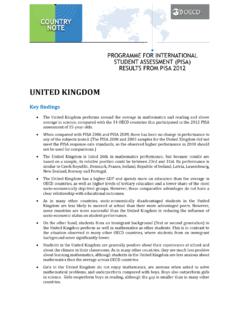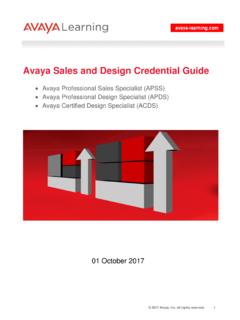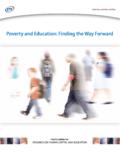Transcription of PSCI 503 Policy Analysis Masters of Public …
1 1 PSCI 503 Policy Analysis Masters of Public administration Program / spring 2015 online Version online on Thursdays; work is due on Friday mornings Professor: Jeffrey Greene Telephone: 243-6181 / Office: LA 356 / Office Hours: 3- 4 Tue/Wed E-mail Professor Greene: This class is open to graduate students from any graduate program at the University of Montana. Undergraduates must have the consent of the instructor to take this course. TEXTS Public Policy : An Evolutionary Approach, 3/e, by Lester and Stewart (Students can use the 2/e of this book) Issues for Debate in American Public Policy , 15/e, by The CQ Researcher (Supplemental reader) Public Policy : Theories, Models, and Concepts, by McCool (Supplemental reader of classic articles; used for article summaries) COURSE DESCRIPTION Public Policy is one of the most exciting areas in political science and Public administration .
2 PSCI 503 is designed to provide students with an overview of the Public Policy process and an overview of the history and evolution of Policy studies. The course also provides an introduction to the fundamental theories, concepts, terms, and methodologies associated with Policy Analysis , and an introduction to the basic procedures used in conducting Policy Analysis . The purpose of the course is to acquaint students with the complexities of Public Policy and Policy Analysis . The course is intended to provide students with an adequate background at a level of understanding appropriate for a variety of Public sector employment settings. The course will blend theory and practice.
3 Much of the course (the last five or six weeks) will be used discussing and analyzing a series of Policy issues included in the Lester and Stewart text and the Issues for Debate in American Public Policy text by Congressional Quarterly. The Discussion Board is a significant part of the class; students are expected to answer at least three of the questions each week. 2 Primary Objectives Objective #1: To provide students with a general understanding of Public Policy and Policy Analysis by reading and discussing classic and contemporary literature. Students will be exposed to the basic concepts, terms, and methodologies associated with Policy studies. In this process, students will gain a general understanding of the history and evolution of Policy studies.
4 Students proficiency will be measured via class discussions. The written, comprehensive exam that was used in the past will not be used in this section of PSCI 503. Objective #2: To enhance students ability to write concise reports pertaining to Public Policy . This objective will be accomplished by having students write article critiques and an 10-12 page Policy summary. Details of these projects are explained later in the syllabus. Students proficiency will be assessed via the written article critiques and the Policy summary paper. Objective #3: To provide students with the basic procedures used to conduct Policy Analysis . Students proficiency in this area will be assessed by material included on the comprehensive exam.
5 Students will also develop proficiency at "framing" Policy issues. This idea is developed in the National Issue Forums; you can view these online at Public Agenda, for a variety of Policy issues. Upon success completion of the course, students should be able to: 1). Demonstrate knowledge of the history and evolution of domestic Public Policy 2). Demonstrate an understanding of the fundamental terms and concepts associated with Public Policy and Policy studies, including the various stages of the Policy cycle 3). Demonstrate proficiency at writing concise reports that deal with complex material 4). Be able to construct a Policy Analysis design 5). Demonstrate a thorough understanding of a specific Policy by writing a Policy summary.
6 6). Demonstrate the ability to "frame" complex Policy issues. It should be stressed that PSCI 503 contains many other secondary objectives. For example, oral communication skills and critical thinking skills are not primary objectives in PSCI 503 but are deeply embodied in the course. Additional and more specific learning objectives can be viewed at PSCI 503 Learning Objectives on Moodle. REQUIREMENTS: Policy paper, article summaries, and discussion board Exam There is not a written, formal exam in PSCI 503. Article Summaries The McCool text contains a variety of articles. The critiques constitute 20 percent of one s final grade. Students are expected to write five (5) article summaries.
7 These are due the last class, and it is helpful to put all five article summaries into one document. Sample article summaries are provided on Moodle. 3 1. What is the major subject and theme of the article? 2. What is the major question the author addresses? 3. What techniques, tools of Analysis , or methods are employed by the author to answer the question? 4. What major points does the author make? 5. What does the author conclude? What suggestions are made? 6. What is the relevance of the article to theory or practice? (What does it mean?) Sample article summaries are posted on Moodle. Policy Paper Students will select the Policy . The topics should be approved to ensure the Policy areas are not too broad.
8 This paper is similar to what is used in PSCI 505 (the Public budgeting class) but will consist of providing an overview of a Policy , describing how the Policy has been framed (or various ways it has been framed), an overview of the potential remedies to resolve the problem -- the pros and cons of the remedies. The paper should be 10 to 12 pages using single or double-spacing. The goal is to keep the paper a concise as possible while thoroughly covering the topic. Rather than write a longer paper, students can adjust the paper using single, space and a half, font size, etc. to make it fit within the 12 page limit. The title page and references, if endnotes or a bibliography is used, do not count in the 12 pages.
9 Students can select any Policy of interest. This Policy does NOT have to be a broad Policy , such as welfare or economic Policy . It should be a narrow Policy or a part of a much larger Policy . For example, no one should select health care Policy in America, but a person might select either the prescription drug plan associated with Medicare or "providing prescription drugs for senior citizens," and examine the various proposals. Samples of Policy papers are provided on Moodle. Grade Weights Policy 40% Due April 24 (Friday) Discussion Board .. 20 percent (based on quality of responses; due on Friday mornings) Article Due April 24 (Friday) Attendance and Participation: Students are encouraged to participate in class discussions on the discussion board.
10 Poor attendance and poor quality or lack of participating in class discussions will affect one s final grade. Students are expected to miss no more than three classes during the semester. COURSE OUTLINE and READINGS PART I THE BASICS OF Public Policy Session 1 Introduction, Background, and Context: What is Public Policy ? What is Policy Analysis ? (Assigned January 30; due February 6) 4 Lester & Stewart, Chapters 1,2 McCool, Sections 1,2 Assigned Articles (McCool) "Interest Groups and the Nature of the State" by Truman "Three Types of Pluralism" by Kelso "The Golden Era of Interest Group Pluralism" by Garson "The Comparative Study of Political Elites" by Putnam "A Critique of Elitist Theory of Democracy" by Walker "The Political System under Stress" by Easton " Policy Science as Metaphysical Madness" by Banfield (This article is posted on Moodle) Session 2 Approaches and Models (due February 13) Lester & Stewart, Chapters 3,4 Assigned Articles (McCool)







